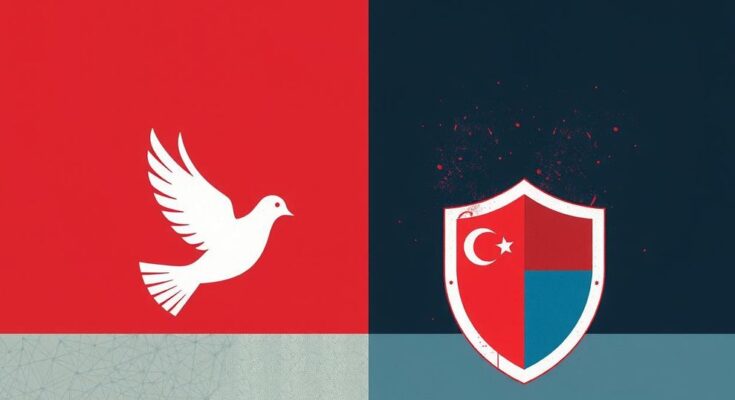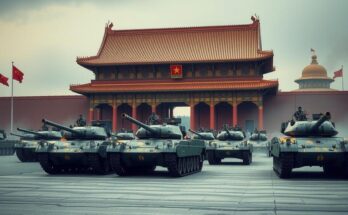Qatar has escalated its criticism of Israel, warning against military strikes on Iran’s nuclear sites, citing severe consequences for Persian Gulf nations. The Qatari Foreign Minister made these statements during an interview, emphasizing diplomacy over military action. Qatar is also advocating for the regulation of Israeli nuclear facilities and positioning itself as a mediator in ongoing ceasefire discussions with Hamas.
Qatar has intensified its criticism of Israel, particularly concerning its actions towards Iran. The Qatari Foreign Minister, Sheikh Mohammed bin Abdulrahman bin Jassim Al Thani, recently warned in an interview that an attack on Iran’s nuclear facilities could provoke severe consequences, including critical water shortages for Persian Gulf states within three days. This statement seems aimed at influencing U.S. policy towards Iran, advocating for diplomacy rather than military engagement.
This commentary aligns with a broader Qatari strategy to assert influence amidst ongoing regional tensions. Qatar has also condemned Israeli accusations, particularly those from the Shin Bet regarding financial support to Gaza potentially empowering Hamas. A statement from Qatar’s International Media Office called these allegations “false accusations” and characterized them as moves driven by self-interest in Israeli politics.
Additionally, Qatar is exerting pressure on Israel to bring its nuclear facilities under international oversight. Following discussions at the International Atomic Energy Agency (IAEA) session in Vienna, Qatar called for Israel to join the Non-Proliferation of Nuclear Weapons Treaty (NPT). These statements coincide with Qatar’s mediation efforts regarding the ceasefire talks in Gaza, emphasizing its growing influence as a negotiator in the region.
The foreign minister’s remarks were highlighted in Iranian media, suggesting that Doha’s position resonates with Tehran. He emphasized the grave implications for regional stability should military action be pursued against Iran, particularly referencing the geographic proximity of the Bushehr Nuclear Power Plant. Al Thani expressed a commitment to seeking diplomatic resolutions rather than military solutions to the Iranian nuclear dilemma.
Qatar’s recent actions illustrate a deliberate positioning, where it critiques Israeli actions while simultaneously engaging in diplomatic negotiations. As the Trump administration remains involved in the dynamics surrounding hostages held by Hamas, the potential for future negotiations and agreements could reshape the landscape of regional geopolitics.
In summary, Qatar’s vocal stance against Israeli military actions towards Iran signifies a strategic shift in its diplomatic engagement in the region. With calls for international regulation of Israeli nuclear facilities and a strong warning against military action, Qatar aims to foster a diplomatic resolution while asserting its influence. The unfolding dynamics will be critical to watch as Qatar navigates its complex role amid ongoing regional tensions and negotiations.
Original Source: www.jpost.com




